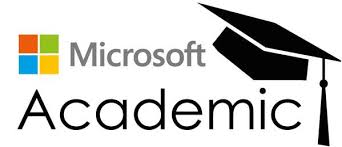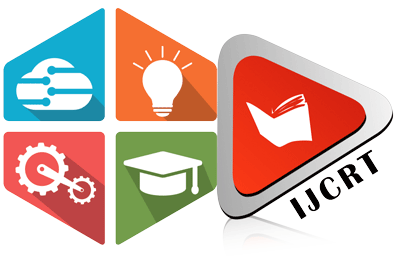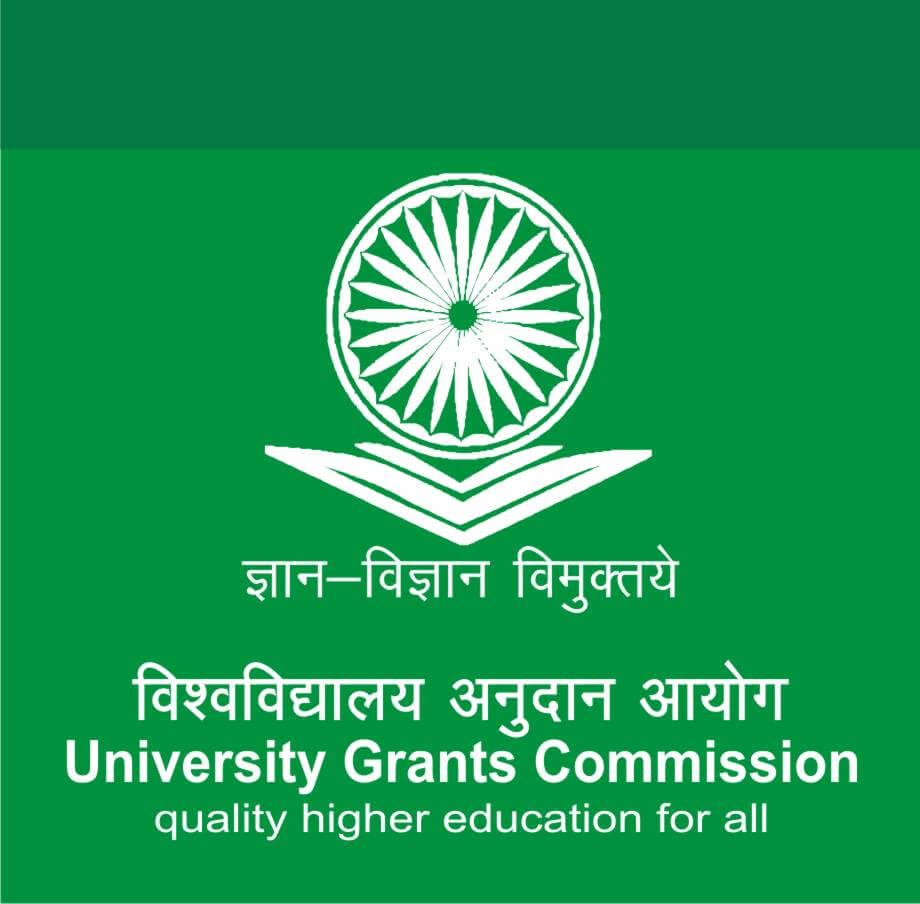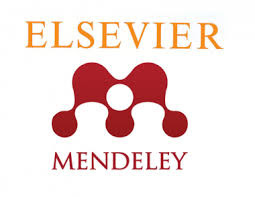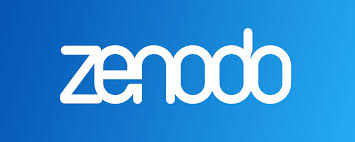INTERNATIONAL JOURNAL OF CREATIVE RESEARCH THOUGHTS - IJCRT (IJCRT.ORG)
International Peer Reviewed & Refereed Journals, Open Access Journal
IJCRT Peer-Reviewed (Refereed) Journal as Per New UGC Rules.
ISSN Approved Journal No: 2320-2882 | Impact factor: 7.97 | ESTD Year: 2013
Call For Paper - Volume 14 | Issue 1 | Month- January 2026
Scholarly open access journals, Peer-reviewed, and Refereed Journals, Impact factor 7.97 (Calculate by google scholar and Semantic Scholar | AI-Powered Research Tool) , Multidisciplinary, Monthly, Indexing in all major database & Metadata, Citation Generator, Digital Object Identifier(CrossRef DOI)
Contact Us Click Here
WhatsApp Contact Click Here
Volume 8 | Issue 2
| IJCRT Journal front page | IJCRT Journal Back Page |
Paper Title: RIGHTS OF THE REFUGEES AND HUMANITARIAN OBLIGATION OF WORLD AT LARGE WITH SPECIAL REFERENCE TO INDIA.
Publisher Journal Name: IJCRT
Your Paper Publication Details:
Published Paper ID: - IJCRT2002116
Register Paper ID - 191968
Title: RIGHTS OF THE REFUGEES AND HUMANITARIAN OBLIGATION OF WORLD AT LARGE WITH SPECIAL REFERENCE TO INDIA.
Author Name(s): DR, NIRANJAN PARIDA
Publisher Journal name: IJCRT
Volume: 8
Issue: 2
Pages: 1125-1146
Year: February 2020
Downloads: 1602
Abstract
ABSTRACT A quarter billion people worldwide live outside their country of nationality. Most of them are migrants, people who opt to leave their countries seeking greater opportunity. One-tenth of them, though, are refugees. They are fleeing political persecution and other acute threats. Most refugees go to countries neighboring their own, in part so that they can return home when circumstances change. The work of protecting refugees is carried out by a vast array of organizations. Some are public, others private; some are global, others grassroots. States, however, are the ultimate arbiters of their work. The international refugee regime, under the guiding hand of the UN High Commissioner for Refugees (UNHCR), has proven adept at providing life-saving assistance in response to emergencies but has been challenged to provide meaningful opportunities for the long-term displaced or support the communities hosting them. Compounding the challenges, it faces is the retreat of many advanced democracies amid rising anti-immigrant sentiment. Established by the 1951 convention and its 1967 protocol, the regime envisioned refugee status as a temporary one for people who fear or have suffered persecution on the basis of race, religion, nationality, membership in a social group, or political opinion and who as a result require protection until they can return to their countries of origin; gain permanent residency in the country to which they have fled; or be resettled in a third country. The current state of the international refugee regime provides us with tried and tested tools to address them. What is needed now is to put our collective resources and capacities to their most effective use. We are already seeing this in the recent move towards creating a proposed Global Compact on Responsibility Sharing for Refugees, as set out in the UN secretary-general�s report, In Safety and Dignity: Addressing Large Movements of Refugees and Migrants. We are also seeing this with innovative directions in protection, assistance, and solutions for refugees that are helping us to operationalize long-standing principles of protection, transforming them into tangible results for refugees. New forms of group determination, combined with community-based protection and other measures, can help to ensure an appropriate legal status while at the same time identifying specific protection needs. Protection strategies can inform frameworks for governing migration and meeting the needs of the most vulnerable migrants. The integration of services to refugees within national systems and the expansion of cash-based programming can meet essential needs for assistance more effectively. The Humanitarian-Obligation of World at Large realization of Rights of the Refugees can provide the building for achieving a long-term solution, which remain, as ever, the ultimate aspiration of the international refugee protection regime. Thus, viewing the refugee problem in the context of humanitarian rights has assumed unprecedented importance today. The present article considers some of the basic human rights of refugees and their implications in the area of refugee protection. It also surveys the human rights of refugees in India and gives a brief account of the impact which human rights principles have made on the current programs and policies of UNHCR and the increasing involvement of human rights bodies in matters relating to refugees. Humanitarian emergencies are becoming increasingly frequent and thus, for want of better protection of human rights in these circumstances, humanitarian policy-making and emergency response need to take an integrated approach combining needs-based and rights-based approaches.
Licence: creative commons attribution 4.0
License
Keywords
KEYWORDS- Refugees, Displaced Persons, Rights, Humanitarian, Obligation, Extradition, Expulsion, Refoulement, Asylum, Non-discrimination, Protection of Refugees, International Humanitarian law, Chakmas, Right to life and Personal Security, Safeguard, Convention etc.
License
Paper Title: LATEST TRENDS OF OPEN ACCESS SELF-ARCHIVING A STUDY OF E-LIS REPOSITORY: WITH SPECIFIC REFERENCE TO ASIAN COUNTRIES
Publisher Journal Name: IJCRT
Your Paper Publication Details:
Published Paper ID: - IJCRT2002115
Register Paper ID - 191816
Title: LATEST TRENDS OF OPEN ACCESS SELF-ARCHIVING A STUDY OF E-LIS REPOSITORY: WITH SPECIFIC REFERENCE TO ASIAN COUNTRIES
Author Name(s): Ipsita panda, Bulu Maharana
Publisher Journal name: IJCRT
Volume: 8
Issue: 2
Pages: 1116-1124
Year: February 2020
Downloads: 1667
Abstract
Recently Open Access (OA) is a widely debated issue in the scientific community as well as in the publishing industry. No doubt people in all walks of life are greatly benefitted by the OA philosophy, libraries and information centers have been the prime beneficiaries of the new model of information access and delivery. The main objective of this OA ventures is to make the recorded scholarly output freely available to all readers over the Internet. The paper is a case study of E-LIS repository which provides open access LIS spread through worldwide. In this study I try to put the lime light on the Asian countries as a good contributor in the E-LIS repository. The study found that India is the highest contributor to the repository among all the 42 Asian countries with 658 submissions as a whole.
Licence: creative commons attribution 4.0
License
Keywords
Open Access, Open Access Initiatives, Self archiving, Digital Repository, E-LIS
License
Your Paper Publication Details:
Published Paper ID: - IJCRT2002114
Register Paper ID - 191916
Title: SAMAJIK NYAY
Author Name(s): Dr. S. K.YADAV
Publisher Journal name: IJCRT
Volume: 8
Issue: 2
Pages: 1113-1115
Year: February 2020
Downloads: 1686
Abstract
samajik nyay
Licence: creative commons attribution 4.0
License
Paper Title: A STUDY ON THE RELATIONSHIP BETWEEN TRANSFORMATIONAL LEADERSHIP AND EMPLOYEE�S JOB SATISFACTION AT HOUSEJOY PVT. LTD
Publisher Journal Name: IJCRT
Your Paper Publication Details:
Published Paper ID: - IJCRT2002113
Register Paper ID - 191945
Title: A STUDY ON THE RELATIONSHIP BETWEEN TRANSFORMATIONAL LEADERSHIP AND EMPLOYEE�S JOB SATISFACTION AT HOUSEJOY PVT. LTD
Author Name(s): SPOORTHI.S
Publisher Journal name: IJCRT
Volume: 8
Issue: 2
Pages: 1109-1112
Year: February 2020
Downloads: 1585
Abstract
Transformational leadership is a specific leadership style applied by leaders who motivate and inspire their subordinates to perform in the organization. Job satisfaction refers to the employee�s perceptions of their working conditions, compensation, independence, authority, creativity and security. The review shows that job satisfaction is related to employee�s relations with superiors, recognition by employer and working environment. Similarly, an organization�s leadership refers to its leadership style of providing directions and motivation to the employees. Transformational leadership depends upon the leadership style executed by the superiors under the dimensions such as idealized influence, inspirational motivation, intellectual stimulation and individual consideration. Google forms, Multifactor Leadership Questionnaires (Form 5X-Short) and Minnesota Job Satisfaction Questionnaires based on transformational leadership and employee�s job satisfaction using Correlation and Regression analysis is considered in the study, with a sample of 100 employees from the organization to provide a critical review of the relation between transformational leadership and job satisfaction experienced by employees at a service provider company as Housejoy Pvt. Ltd.
Licence: creative commons attribution 4.0
License
Keywords
Transformational Leadership, Idealized Influence, Inspirational Motivation, Intellectual Stimulation, Individual Consideration and Job Satisfaction
License
Paper Title: A CASE STUDY OF STATUS OF WATER QUALITY OF DRAINS IN DELHI
Publisher Journal Name: IJCRT
Your Paper Publication Details:
Published Paper ID: - IJCRT2002112
Register Paper ID - 191950
Title: A CASE STUDY OF STATUS OF WATER QUALITY OF DRAINS IN DELHI
Author Name(s): Harish Uniyal, Diwaker Yadav, Aarti jain, Nida Ahmed
Publisher Journal name: IJCRT
Volume: 8
Issue: 2
Pages: 1100-1108
Year: February 2020
Downloads: 1615
Abstract
The Yamuna River is the second largest tributary of Ganges .It is originating from the Yamunotri Glacier at a height of 6,387 meters on the southwestern slopes of Banderpooch peaks of the lower Himalaya in Uttrakhand. It travels a total length of 1,376 kilometers. It is one of the most polluted rivers in India. Yamuna river flows only for 54 kilometers from Palla to Baderpur through Delhi, the 22 km stretch from Wazirabad to Okhla, which is the less than 2 percent of the river length of 1370 kilometers from Yamunotri to Prayagraj, accounts of about 76 percent of the pollution level in the river. This 2 percent stretch from Wazirabad to Okhla has maximum discharge of untreated industrial and domestic waste. The undeveloped sewerage system and unavailability of sewerage lines in Delhi are affecting the water quality of Yamuna River by falling of untreated sewage water through the open drains. The 21 drains discharge around 850 MGD (million gallons per day) of sewage into the Yamuna every day. Looking to the severe condition of the sewerage system, it was decided to carry out a study to analyze the effect of open drainage system on water quality (Physico-chemical parameters) of Yamuna River and status of sewage generation and treatment.
Licence: creative commons attribution 4.0
License
Keywords
Physico-chemical parameters, wastewater,Yamuna River, open drains, sewage generation.
License
Paper Title: E-CONTRACT AS PER INFORMATION TECHNOLOGY ACT 2000
Publisher Journal Name: IJCRT
Your Paper Publication Details:
Published Paper ID: - IJCRT2002111
Register Paper ID - 191952
Title: E-CONTRACT AS PER INFORMATION TECHNOLOGY ACT 2000
Author Name(s): Piyali Biswas
Publisher Journal name: IJCRT
Volume: 8
Issue: 2
Pages: 1097-1099
Year: February 2020
Downloads: 1866
Abstract
The very rapid emergence of industrialisation, globalisation and technicalities formed with the rise of this computer technology. One of the products of E-commerce is E Contract, example are Online shopping, online banking, online auction act.In this age of IT, the whole transaction can be completed in seconds, with both parties simply affixing their electronic signatures to an electronic copy of their contract and this type of contract is legally valid under Information Technology Act 2000.But in whole over the Act none of the section says about parties eligibility to perform the online contract, only section 11 of the IT Act said about attribution of the electronic record to the originator. For getting the legally eligibility of the parties we have to consult The Indian Contract Act 1872.It is one of the great defect of IT Act 2000, which also create confusion among the parties on legally validity of their contract. And under certain circumstances parties were under confusion to whom they will blame in case of breach of online contract because the parties didn't know each other face to face and the digital signature of the person affixed on their contract might be of a minor, or of a unsound person.
Licence: creative commons attribution 4.0
License
Paper Title: A DISCUSSION ON THE AGE OF THE UNIVERSE
Publisher Journal Name: IJCRT
Your Paper Publication Details:
Published Paper ID: - IJCRT2002110
Register Paper ID - 191951
Title: A DISCUSSION ON THE AGE OF THE UNIVERSE
Author Name(s): Dr Amit Prakash
Publisher Journal name: IJCRT
Volume: 8
Issue: 2
Pages: 1095-1096
Year: February 2020
Downloads: 1535
Abstract
The present paper provides some discussion and result about the age of the universe
Licence: creative commons attribution 4.0
License
Keywords
relativity,cosmology,universe,galaxy
License
Paper Title: ASIAN PERSPECTIVE ON WHITE COLLAR CRIME AND THE LEGAL REGIME
Publisher Journal Name: IJCRT
Your Paper Publication Details:
Published Paper ID: - IJCRT2002109
Register Paper ID - 191922
Title: ASIAN PERSPECTIVE ON WHITE COLLAR CRIME AND THE LEGAL REGIME
Author Name(s): Lokesha KG, Dr.V Sudesh
Publisher Journal name: IJCRT
Volume: 8
Issue: 2
Pages: 1092-1094
Year: February 2020
Downloads: 1556
Abstract
In recent years due to the onset of globalization and consequent economic prosperity, there is an increase in the commission of white collar crimes. One reason attributed for increase in white collar crimes is the growth of corporate sector. Despite their being legal measures to control white collar crimes, we find that in recent times the Asian region particularly in India big corporate names have managed to escape the clutches of law, partly this could be attributed to the growth of countries as important economic players. Sociologists observe this phenomenon as social deviance; however criminologists consider this as an act of violation of the law with the criminal intent. The SAARC nation�s agenda for the welfare of the people of South Asia plays an important role in preventing such crimes. The Prevention of Corruption Amendment Act (2018) of India tries to tackle the problem of white collar crimes. Further the Central Vigilance Commission Act, the Lokpal and Lokayuktha act all have an important role in investigating white collar crimes. The Governance model in South Asia has to take note of the developments around the globe to check the commission of white collar crimes. The Co-operation of International Agencies assisted by local police networks will go a long way in controlling such crimes. Non regulation of white collar crimes may not only negate the economic achievements that the countries are making but also may eat up the social welfare fund of the government. This paper is an attempt to analyse the socio legal problems of white collar crimes in the context of governance model in South Asia
Licence: creative commons attribution 4.0
License
Keywords
White collar crime,Legal regime
License
Paper Title: Different Methods of Reducing Mutual Coupling between Microstrip MIMO Antenna: A Review
Publisher Journal Name: IJCRT
Your Paper Publication Details:
Published Paper ID: - IJCRT2002108
Register Paper ID - 191672
Title: DIFFERENT METHODS OF REDUCING MUTUAL COUPLING BETWEEN MICROSTRIP MIMO ANTENNA: A REVIEW
Author Name(s): Anil pandey, Nitesh kumar
Publisher Journal name: IJCRT
Volume: 8
Issue: 2
Pages: 1086-1091
Year: February 2020
Downloads: 1591
Abstract
Licence: creative commons attribution 4.0
License
Keywords
microstrip patch antenna, MIMO antenna, 5G,Mutual coupling
License
Paper Title: CONTRIBUTION OF TECHNOLOGY IN DIFFERENT GAMES AND SPORTS
Publisher Journal Name: IJCRT
Your Paper Publication Details:
Published Paper ID: - IJCRT2002107
Register Paper ID - 191941
Title: CONTRIBUTION OF TECHNOLOGY IN DIFFERENT GAMES AND SPORTS
Author Name(s): Sahil sharma
Publisher Journal name: IJCRT
Volume: 8
Issue: 2
Pages: 1082-1085
Year: February 2020
Downloads: 1583
Abstract
In this paper, we discussed about technology and how the technological tools is used in sports and games. For this purpose, we review the existing lines of research on this topic. The use of technological applications is now widespread across many games and sports disciplines. The revolutionary innovations in technology have changed the shape of sports scenario in which athletes are monitored in daily training and competitions environment. Technology is the best way to avoid mistakes in organization and administration of various sports and games at all levels. The uses of electronic technologies and internet applications have made the teaching-learning process more efficient. This paper elaborates the use and benefits of collaboration of technologies and sports and games.
Licence: creative commons attribution 4.0
License
Keywords
Technology, sports, internet, electronic gadgets, computer
License
Paper Title: A REVIEW ON BLOOD CELLS COUNTING USING IMAGE PROCESSING
Publisher Journal Name: IJCRT
Your Paper Publication Details:
Published Paper ID: - IJCRT2002106
Register Paper ID - 191730
Title: A REVIEW ON BLOOD CELLS COUNTING USING IMAGE PROCESSING
Author Name(s): Miss. Shweta Janardan Kamble, Prof. Dr. Manasi Dixit
Publisher Journal name: IJCRT
Volume: 8
Issue: 2
Pages: 1078-1081
Year: February 2020
Downloads: 1663
Abstract
The human blood contains the RBCs, WBCs, Platelets and Plasma. To count the blood is very important because they indicate the state of health. Counting of Complete Blood Count (CBC) includes all the cells that determines person�s health and diagnose the diseases. There are various techniques of blood cells counting which involves conventional as well as automatic techniques. This paper gives review on different techniques applied to obtain the blood cells counting. Image Processing involves Image Acquisition, Pre Processing, Image Segmentation, Image Post-Processing and cell counting Algorithm.
Licence: creative commons attribution 4.0
License
Keywords
Complete Blood Count , Image Processing , Red Blood Cells , White Blood Cells , Platelets
License
Paper Title: MAHATMA GANDHI�S VISION ON EDUCATION: ITS RELEVANCE IN THE 21ST CENTURY
Publisher Journal Name: IJCRT
Your Paper Publication Details:
Published Paper ID: - IJCRT2002105
Register Paper ID - 191818
Title: MAHATMA GANDHI�S VISION ON EDUCATION: ITS RELEVANCE IN THE 21ST CENTURY
Author Name(s): Dr. B.K. Mahakul
Publisher Journal name: IJCRT
Volume: 8
Issue: 2
Pages: 1070-1077
Year: February 2020
Downloads: 1909
Abstract
ABSTRACT Mohandas Karam Chand Gandhi, the father of Nation was a great leader as well as a Social Reformer, He was first called �Mahatma� by Rabindranath Tagore and �Father of the Nation� by Subas Chandra Bose Considering his Contribution towards Society. Among them education is one. Education is a cultural Construct meant to socialize the citizen, transmit knowledge from one generation to another to better all generations. The education system is supposed to contribute to individual growth and Social transformation. Gandhiji played a very important role in the educational system in India. The performance of roles by the individual in the society, Gandhi believes, is greatly influenced, affected and determined by the type of education as received and inculcated by him during the formative years of his life. He therefore, prescribes for a scheme of education known as the �Nayi Talim� (New Education of Basic Education) in which every child ought to be educated and trained for the realization of his ethical goal in life and also the goal of a just social order. According to Gandhi, education should aim at a balanced and harmonious development of the body, mind and soul of the individual. If it results in the development one without the other two, it can not be beneficial for the individual and the society as well. Therefore, there should be a balanced combination of intellectual educating and physical education by assigning equal importance to both. He affirms: �I hold that true education of the intellect can only come through a proper exercise and training of the bodily organs. E.g. hands, feet, eyes, ears, nose etc. In other worlds, an intelligent use of the bodily organs in a child provides the best and quickest way of developing, his intellect. But unless the development of the mind and the body goes hand in hand with a corresponding awakening of the soul, the former alone would prove to be a poor lop-sided affair. By spiritual training I mean education of the heart. A proper and all round development of the mind therefore, can take place only when it proceeds pari passu with the education of the physic cal and spiritual facilities of the child. They constitute an indivisible whole� Therefore, it would be a gross fallacy to suppose that they can be developed piece-meal an independently of one-another. In view of the above this paper will give reflections on the vision of Mahatma Gandhi on education which tends to provide an effective panacea for eliminating and eradicating the ills and evils of corruption, violence, crimes, conflict and disharmony that affect the contemporary societies throughout the world. The vision of Gandhiji on education seems to be relevant for the 21st century. Director and Research officer, SAMADHAN-A Centre for Socio-Eco, Scientific Development and Research, Sambalpur. Email-bmahakul64@gmail.com
Licence: creative commons attribution 4.0
License
Paper Title: ATTAINMENT OF COURSE OUTCOMES - A TOOL TO ASSESS THE PROFICIENCY OF L S R W SKILLS IN ENGLISH ?
Publisher Journal Name: IJCRT
Your Paper Publication Details:
Published Paper ID: - IJCRT2002104
Register Paper ID - 191874
Title: ATTAINMENT OF COURSE OUTCOMES - A TOOL TO ASSESS THE PROFICIENCY OF L S R W SKILLS IN ENGLISH ?
Author Name(s): Bishnu Paramguru Mahapatra
Publisher Journal name: IJCRT
Volume: 8
Issue: 2
Pages: 1057-1069
Year: February 2020
Downloads: 1632
Abstract
Outcome based education is the demand of the day for all professional degrees where the traditional education is taking a backseat. The focus on outcome based education creates a clear expectation of what students need to do by the end of the course. The traditional approach of teaching is teacher centric where as the OBE model is student centric. It is the Cos (Course Outcomes) paves the way for learning outcomes. For each course, there are certain Course outcomes which are analyzed taking the program outcomes and other requirements into account. Program outcomes are the twelve graduate attributes as set by NBA. COs are the measurable attributes which needs to be assessed at the end of successful completion of the course. Each course under the program has its own set of Cos. The present paper throws a light in the process to measure the COs through a case study on CESS (Communicative English and Soft Skills), a course compulsory for all branches of Engineering students. The analysis and the result of the course outcomes is shown through CO attainment in the CO-PO Matrix
Licence: creative commons attribution 4.0
License
Keywords
Course Outcomes, Outcome Based Education, CO-PO Matrix.
License
Paper Title: A REVIEW ON BOUNDARY DETECTION AND AREA CALCULATION OF LAKE USING IMAGE PROCESSING
Publisher Journal Name: IJCRT
Your Paper Publication Details:
Published Paper ID: - IJCRT2002103
Register Paper ID - 191731
Title: A REVIEW ON BOUNDARY DETECTION AND AREA CALCULATION OF LAKE USING IMAGE PROCESSING
Author Name(s): Miss Namrata D Khaire, Prof Dr Manasi R Dixit
Publisher Journal name: IJCRT
Volume: 8
Issue: 2
Pages: 1053-1056
Year: February 2020
Downloads: 1584
Abstract
It is very important to monitor the increase or decrease in water level and occupied area of lakes or rivers during summer and rainy seasons to overcome the problems in future. The boundary and area of lake is calculated of satellite images using Image Processing Technique. This paper gives review on different techniques to obtain the area and detect boundary of lake. Analyzing the satellite images of the lakes would help to determine the edges of the lake and it�s declining rate. The analysis process can be done using various algorithms and software.
Licence: creative commons attribution 4.0
License
Keywords
Image segmentation, Region Growing, Thresholding
License
Paper Title: IOT BASED SMART ENERGY METER
Publisher Journal Name: IJCRT
Your Paper Publication Details:
Published Paper ID: - IJCRT2002102
Register Paper ID - 191935
Title: IOT BASED SMART ENERGY METER
Author Name(s): Abhishek Nanoti, Vaishnavi Patil, Srishti Shetty, Deepa Nath
Publisher Journal name: IJCRT
Volume: 8
Issue: 2
Pages: 1047-1052
Year: February 2020
Downloads: 1744
Abstract
Wireless automation in electricity and billing is the new innovation in terms of technology. Retrieving the data of units consumed by the consumers is not efficient. The current process of electricity billing is susceptible to errors. It is time and resource and labor consuming as well. The problem of the billing system becomes crucial when consumers try to tamper the meter, thereby pay less amount than what actually should be paid. In our proposed system, already installed energy meters at our houses are not replaced, but an additional small circuit design along with IoT on the already installed meters can change the existing meters into smart meters. Smart Electricity meter using Internet of Things (IoT) system present an efficient and cost-effective way to transfer the information of energy consumed to the consumer wirelessly and automatically without any human intervention, as well as it provides facilities to detect the illegal usage of the electricity. Aim of this project is to calculate the electricity consumption, formulate the bill automatically without any labor and transfer it using IoT. Bill amount is SMSed through IoT platform to the consumer at the start of every month with the help of RTC. Also, this study aims to detect and control the energy theft. A passive infrared (IR) sensor is engaged with the system to detect when any illegal alteration happens in the metering system. In such case, the system itself will notify it to the server, as well as it has the facility to disconnect and re-connect the electricity supply automatically using a Solid-State Relay, also the power supply can be disconnected and reconnected remotely in case of pending bills.
Licence: creative commons attribution 4.0
License
Keywords
Key words- Wireless Automation, Internet of Things (IoT), Microcontroller, IR sensor, Solid State Relay, RTC.
License
Paper Title: INDIA AS A SENSITIVE BACKGROUND FOR ART EDUCATION
Publisher Journal Name: IJCRT
Your Paper Publication Details:
Published Paper ID: - IJCRT2002100
Register Paper ID - 191934
Title: INDIA AS A SENSITIVE BACKGROUND FOR ART EDUCATION
Author Name(s): Babu K
Publisher Journal name: IJCRT
Volume: 8
Issue: 2
Pages: 1024-1038
Year: February 2020
Downloads: 1758
Abstract
Abstract: �It was fundamental for the diverse cultural institutions in India which managed establishments of inimitable education to society in the course of its constant existence even if this relation restricted all resources of fortitude during its subsistence, due to various factors but religious reasons were at prime. They continued teaching until got vanished from history, Hinduism, Buddhism, Brahmanism and Jainism are major among them and each of them introduced unique art education systems through ideological expansion and own survival. It was followed by Mughal Empire who encouraged Miniature Painting and Company School came into survival on prolongation to this which supported materialization of art activities to appeal Western sensibilities. Ravi Varma was totally criticized for his manifestations with oil painting: a Western device but Bengal school proved its name for being more Indian through their propaganda. The school established by Rabindranath Tagore at Santiniketan was answer for many questions: the new beginnings from here and with emergence of Individual activities by various geniuses, a style accepted Pan Indian level began to stage in India and which lead to new developments in Art education.�
Licence: creative commons attribution 4.0
License
Keywords
Art education, Religion, Mughal, Miniature, Company School, Ravi Varma, Bengal school, Santiniketan, N S Bendre, Artists.
License
Paper Title: SOIL TEST CROP RESPONSE BASED INTEGRATED PLANT NUTRIENT MANAGEMENT SYSTEM FOR COWPEA (VIGNA UNGICULATA (L) WALP) IN MOLLISOLS OF UTTARAKHAND
Publisher Journal Name: IJCRT
Your Paper Publication Details:
Published Paper ID: - IJCRT2002099
Register Paper ID - 191931
Title: SOIL TEST CROP RESPONSE BASED INTEGRATED PLANT NUTRIENT MANAGEMENT SYSTEM FOR COWPEA (VIGNA UNGICULATA (L) WALP) IN MOLLISOLS OF UTTARAKHAND
Author Name(s): Dr Varun Tripathi, Prof Sobaran Singh, Dr. Jyoti Pandey
Publisher Journal name: IJCRT
Volume: 8
Issue: 2
Pages: 1015-1023
Year: February 2020
Downloads: 1642
Abstract
A Field experiment was conducted during spring 2009-10 in an Aquic Hapludoll at Norman E Borlaug Crop Research Center of the G.B Pant University of Agriculture and Technology., Pantnagar, as per technical programme of All India Coordinated Research Project on Soil Test Crop Response Correlation. The experiment was conducted in two phases. In the first phase soil fertility gradient was developed by dividing field into three strips and applying graded doses of fertilizers in them, (Strip I: No fertilizer, Strip II: 100, 100 and 100 kg N, P2O5 and K2O/ha and strip III: 200, 200 and 200 kg N, P2O5 and K2O/ha and growing of exhaust crop oat (var Kent). In the second phase i.e. test crop Cowpea (var Pant lobia-1) was grown by dividing each strip in 24 plots having 23 fertilizer treatments and one control plot. Response of selected combinations of three levels of farmyard manure, four levels of nitrogen, four levels of phosphorus and four levels of potassium at different levels of cowpea was studied. The values of the organic carbon, alkaline KMnO4 extractable nitrogen, Olsen�s phosphorus and neutral normal ammonium acetate extractable potassium in the experiment field ranged between 0.72-1.16 per cent, 112.30-200.60 kg/ha, 13.00-24.24 kg/ha and 101.90-245.30 kg/ha, respectively. In the present investigation the total straw yield ranged from 13.07-24.94 q/ha and total grain yield ranged from 9.00-18.20 q/ha. The nutrient requirement for production of one quintal of cowpea grain was found to be 5.71 kg of nitrogen, 0.90 kg of phosphorus and 3.72 kg of potassium. Per cent contribution of nitrogen, phosphorus and potassium was 62.00, 59.00 and 32.00, from soil, whereas from other sources as FYM was 7.00, 29.00, 10.00; chemical fertilizer 30.00, 14.00 and 30.00 and conjoint use of chemical fertilizer with FYM was 30.00, 17.00, 27.00 in terms of NPK respectively. With the help of these data fertilizer recommendation at different yield targets and soil test value can be calculated. Coefficient of quadratic multiple regression (R2) was found highly significant (0.898**) between grain yield, soil test values, added fertilizers and FYM. Organic carbon, alkaline KMnO4-N, Olsen�s P and AB-DTPA P and Ammonium acetate K and AB DTPA K methods of available N, P and K, respectively were at par for the cow pea grown in Mollisol of Uttarakhand. Findings from present study can successfully be utilized for the larger parts of Tarai region of Uttarakhand as effective guide for efficient and balanced fertilizer recommendations.
Licence: creative commons attribution 4.0
License
Keywords
Coefficient of Multiple regression, balanced fertilizer recommendations, coefficient of quadratic multiple regression, Aquic hapludoll
License
Paper Title: ASIAN PERSPECTIVE ON WHITE COLLAR CRIME AND THE LEGAL REGIME
Publisher Journal Name: IJCRT
Your Paper Publication Details:
Published Paper ID: - IJCRT2002098
Register Paper ID - 191921
Title: ASIAN PERSPECTIVE ON WHITE COLLAR CRIME AND THE LEGAL REGIME
Author Name(s): Lokesha KG, Dr.V Sudesh
Publisher Journal name: IJCRT
Volume: 8
Issue: 2
Pages: 1012-1014
Year: February 2020
Downloads: 1634
Abstract
In recent years due to the onset of globalization and consequent economic prosperity, there is an increase in the commission of white collar crimes. One reason attributed for increase in white collar crimes is the growth of corporate sector. Despite their being legal measures to control white collar crimes, we find that in recent times the Asian region particularly in India big corporate names have managed to escape the clutches of law, partly this could be attributed to the growth of countries as important economic players. Sociologists observe this phenomenon as social deviance; however criminologists consider this as an act of violation of the law with the criminal intent. The SAARC nation�s agenda for the welfare of the people of South Asia plays an important role in preventing such crimes. The Prevention of Corruption Amendment Act (2018) of India tries to tackle the problem of white collar crimes. Further the Central Vigilance Commission Act, the Lokpal and Lokayuktha act all have an important role in investigating white collar crimes. The Governance model in South Asia has to take note of the developments around the globe to check the commission of white collar crimes. The Co-operation of International Agencies assisted by local police networks will go a long way in controlling such crimes. Non regulation of white collar crimes may not only negate the economic achievements that the countries are making but also may eat up the social welfare fund of the government. This paper is an attempt to analyse the socio legal problems of white collar crimes in the context of governance model in South Asia
Licence: creative commons attribution 4.0
License
Keywords
White collar crime,Legal regime
License
Paper Title: HUMAN ASSISTED RESTAURANT MANAGEMENT SYSTEM
Publisher Journal Name: IJCRT
Your Paper Publication Details:
Published Paper ID: - IJCRT2002097
Register Paper ID - 191911
Title: HUMAN ASSISTED RESTAURANT MANAGEMENT SYSTEM
Author Name(s): Aishwarya S. Kapse, Pranita P. Deshmukh, Anjali A. Jaiswal, Kalyani W. Gawande, Saurabh N. Deshpande
Publisher Journal name: IJCRT
Volume: 8
Issue: 2
Pages: 1006-1011
Year: February 2020
Downloads: 1623
Abstract
Human Assisted Restaurant Management System (HARMS) is a web application and an android version to restaurant management. It will have all the features of the rapid involving science and its different attributes. Through a strategic design and customer orientation, HARMS is integrated and has been created to optimize the work force and streamline restaurant work flow. It will run on an android, and is both scalable and modular to meet the needs of any establishment. HARMS is an effort to bring technology into the dining menu of customers. HARMS offer robust features that not only help your restaurant to update the menu any time but also improve the overall dining experience. The digital menu is to provide a user-friendly interface by offering smooth navigation and browsing through digital menu thus providing a delightful experience. The customers can order the food, through that android interface. My aims to not only improve the business of restaurants but also to incorporate the essence of science in dining menu. So future-ready restaurant management system is designed to keep track of everything that goes inside the restaurant, and everything is permission based to avoid theft.
Licence: creative commons attribution 4.0
License
Keywords
HARMS, Restaurant Management System, android, digital.
License
Paper Title: DATA EXTRACTION OF DIGITAL TEXT AND CONVERSION INTO AN AUDIO-VISUAL OUTPUT
Publisher Journal Name: IJCRT
Your Paper Publication Details:
Published Paper ID: - IJCRT2002096
Register Paper ID - 191907
Title: DATA EXTRACTION OF DIGITAL TEXT AND CONVERSION INTO AN AUDIO-VISUAL OUTPUT
Author Name(s): Niharika Rajaram, Monisha R, Nikhila M.Y, Rajeev Koushik Y G, K Venkata Rao
Publisher Journal name: IJCRT
Volume: 8
Issue: 2
Pages: 1003-1005
Year: February 2020
Downloads: 1578
Abstract
Abstract�Visual content provides an improved quality of learning. The proposed project is an automatic video generator, which creates a video from a textbook chapter. The video will consist of narration with subtitles of the whole chapter while showing images relevant to the current paragraph. In order to retrieve the images, web scraping will be used. Topic selection and keyphrase analysis will be done and the resulting keyphrase will act as a query for image search. Audio files are generated with the help of retrieved text. The images, audio and text are integrated to create a final video
Licence: creative commons attribution 4.0
License
Keywords
OCR, Data Extraction, Key phrase extraction, Text Processing.
License
About IJCRT
The International Journal of Creative Research Thoughts (IJCRT) aims to explore advances in research pertaining to applied, theoretical and experimental Technological studies. The goal is to promote scientific information interchange between researchers, developers, engineers, students, and practitioners working in and around the world.
Indexing In Google Scholar, ResearcherID Thomson Reuters, Mendeley : reference manager, Academia.edu, arXiv.org, Research Gate, CiteSeerX, DocStoc, ISSUU, Scribd, and many more International Journal of Creative Research Thoughts (IJCRT) ISSN: 2320-2882 | Impact Factor: 7.97 | 7.97 impact factor and ISSN Approved. Provide DOI and Hard copy of Certificate. Low Open Access Processing Charges. 1500 INR for Indian author & 55$ for foreign International author. Call For Paper (Volume 14 | Issue 1 | Month- January 2026)
January 2026
Volume 14 | Issue 1
Last Date :
31-Jan-2026
Submit Manuscript Online Impact Factor: 7.97 Review Results : Within 02-03 Days Paper Publication : Within 02-03 Days

ISSN: 2320-2882 Impact Factor: 7.97 and ISSN APPROVED Journal Starting Year (ESTD) : 2013

ISSN: 2320-2882 Impact Factor: 7.97 and ISSN APPROVED Journal Starting Year (ESTD) : 2013

CONFERENCE PROPOSAL CONFERENCE PROCEEDINGS





















